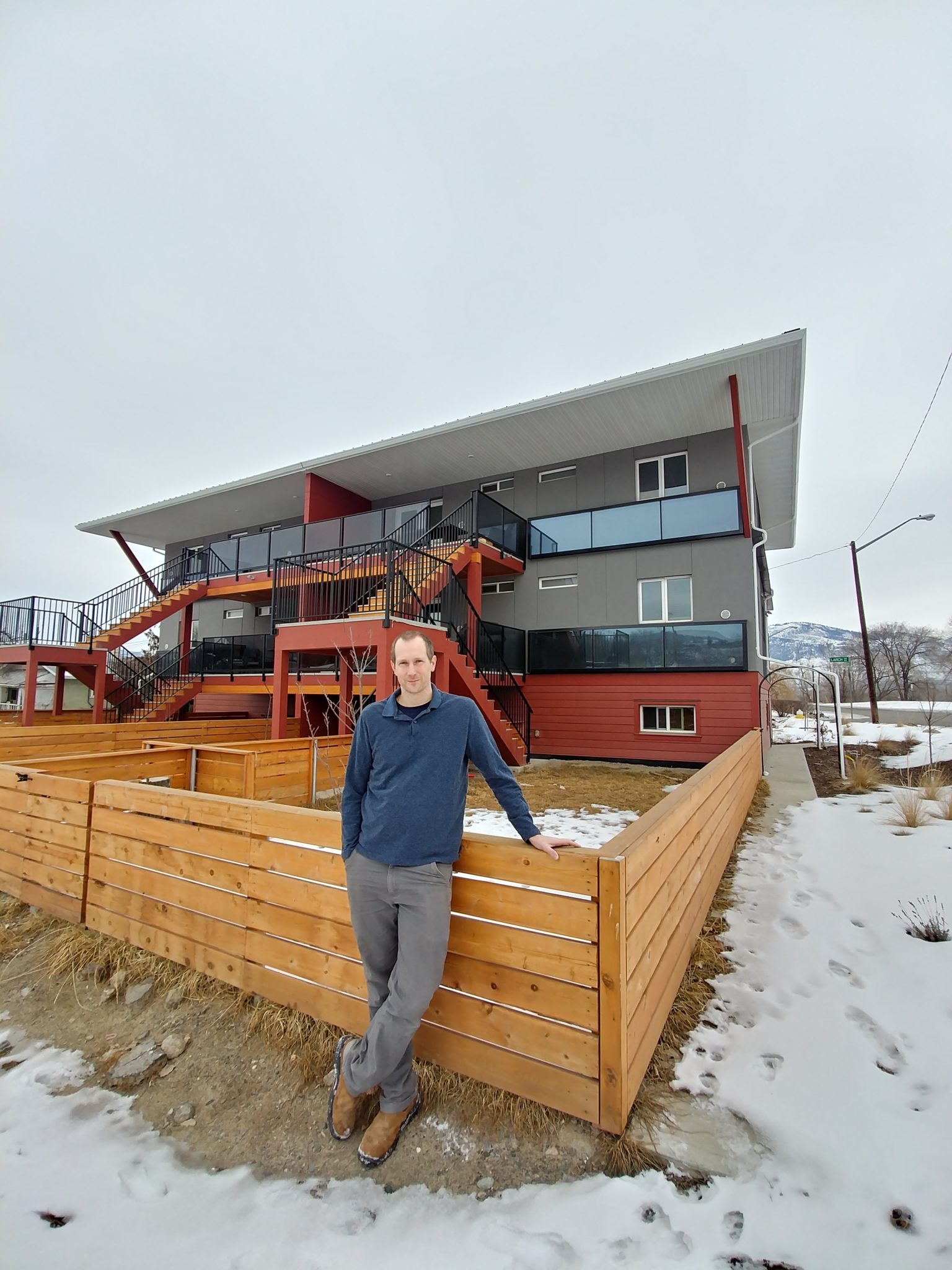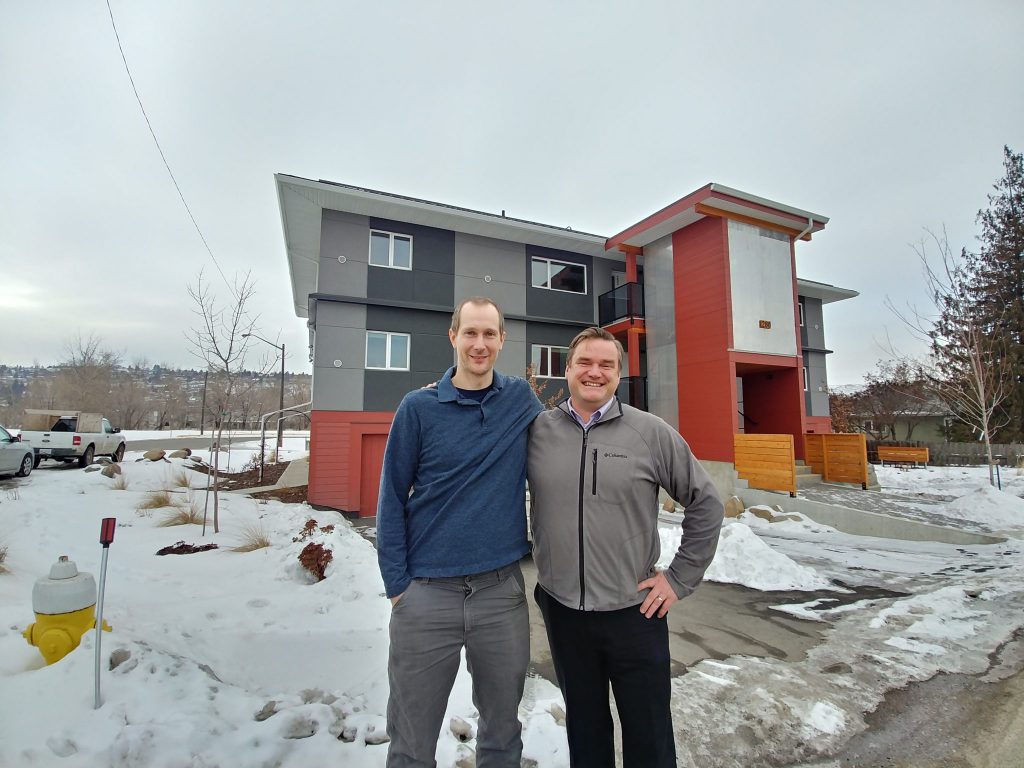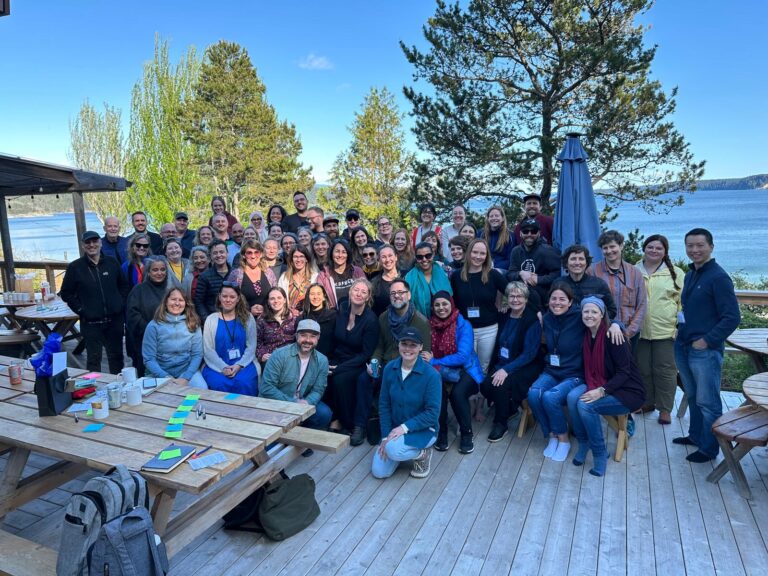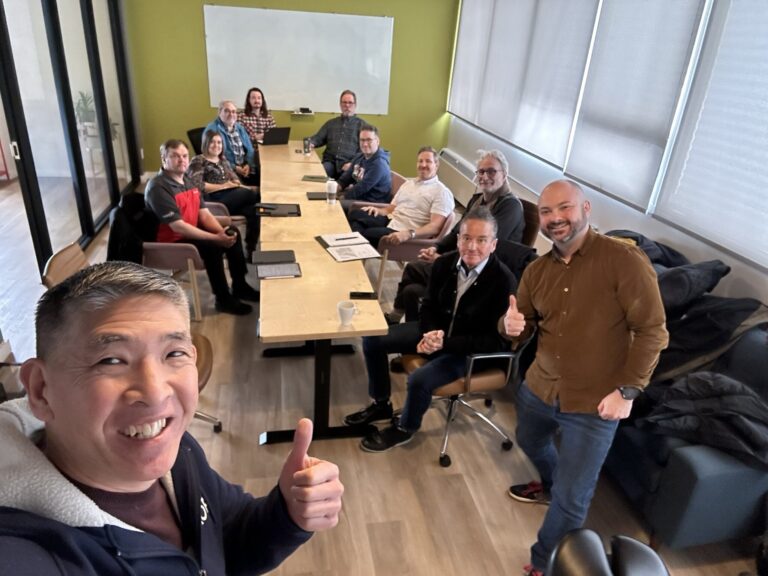
15 March 2019
Reframe Spotlight Part I: Nexbuild Construction
Last fall, Urban Matters and the BC Non-profit Housing Association (BCNPHA) announced winners for the inaugural Reframe Housing Competition (Reframe) at the 2018 Housing Central Conference. The competition invited small businesses, non-profits, and social enterprises from across Western Canada and the Territories to pitch creative housing innovations that could contribute to expanding the affordable, sustainable housing niche (read more about the competition here).
Recently, Urban Matters’ Social Venture Developer Jerome Lengkeek visited the Reframe winners in person. His first stop was in Kamloops, BC, where he met with Miles Pruden of Nexbuild Construction. Miles took home a $5000 prize for Nexbuild Construction’s approach to affordable and sustainable housing. The company placed second in the Active Innovation category.
Walking the walk
Miles has spent many, many hours learning how to build affordable, efficient buildings – he’s also been living in one.
Prior to the Reframe competition, Nexbuild had completed an innovative, high efficiency fourplex in Kamloops. The project, which was completed in July 2018, features sustainable design elements such as specialized windows, solar panels, and thermal mass, meaning it’s efficient to heat and cool. Miles estimates that each two-bedroom unit in the building will cost around $400 per year for heating and cooling.
The units in the fourplex are relatively affordable to purchase as well. Each unit in the building sold for around $360,00 – not bad considering the average price of home in Kamloops was well over $400,000 in 2018.

Miles Pruden of Nexbuild stands with Jerome Lengkeek of Urban Matters in front of Nexbuild’s first high efficiency fourplex on Shubert Drive in Kamloops, British Columbia
Live and learn – and innovate
Over the past several years, Miles has invested time learning how to improve efficiency and lower costs by using good design and the right materials. He’s learned how to use passive energy to capture and dissipate solar heat and has been building boxes to capture solar heat which can then be used to create a natural forced-air system based on direct heat capture. This method is an alternative to solar energy conversion.
Living in his first ‘prototype’ (aka his home) has helped him learn a lot. For example, he’s learning how to minimize sound/noise from neighbouring units. He’s also monitoring his energy consumption and heating costs and making small tweaks to bring them down.
“The best thing about living in a nearly net-zero home is having very low heating bills at the end of the month, leaving us with more money for things we enjoy.”
Miles is working to understand how to make his home and future homes more efficient by exploring the science of airflow. He’s hoping this research will help him maximize his direct heat capture system.
Miles will use the Active Innovation prize money to continue to innovate as he develops an improved wall paneling system using waste wood, a technique used to increase efficiency. He may also use the prize money to fund further research and learning. All of this experience, research, and prototyping will come in handy when he initiates his next project later this year.
Stay tuned for our next story, where we will highlight Jerome’s meeting with Meagan Strong from Expandwell.
Learn more about the Reframe Competition here.




